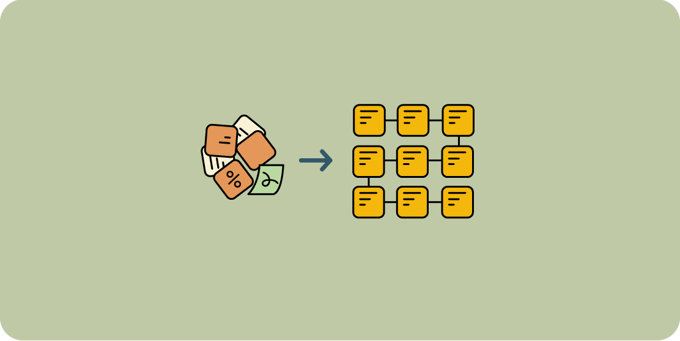Learning Our Lessons: A Guide to Actionable Change
Read Time 7 mins | Written by: Kylie Cannon, PMP

In the project life cycle, closeout is often treated as a formality. Deliverables have been delivered, invoices paid, and project teams shift their focus to the next thing (hopefully after a well-deserved break!).
Successes should be celebrated. Making it through the final sprint of a project is no small feat, and after a major delivery push, rest isn’t just a nice to have – it’s essential to help the team recharge. But in the rush to move on, we often miss the opportunity to pause, reflect, and learn. Once the dust has settled, it’s just as – if not more! – important to circle back and talk about what worked, what didn’t, and what could be done differently next time.
When we skip this step, we do so at a cost: we see the same mistakes and frustrations tend to resurface, creating avoidable bottlenecks, rework, and burnout.
Celebrate, Then Reflect
Project closeout doesn’t need to be immediate, but it shouldn’t wait six months after a project ends, either. Once the pressure of delivery subsides and the team has had a chance to reset is often the best time for thoughtful, constructive reflection.
Reflection is a form of respect. It honors the team’s hard work and success, while also validating the tougher moments they may have faced. It signals a commitment to learning from challenges and doing better in the future. By scheduling a post-project debrief a few weeks out, you create a lower-pressure window space for team members to process the experience and share insights that might otherwise go unspoken.
Facilitate Meaningful Conversations
A lessons learned session isn’t about airing grievances; it’s about identifying opportunities to improve. That often means discussing things that went wrong or decisions the team might approach differently in hindsight, but the goal should always be constructive reflection and forward-looking problem solving.
Skilled facilitators help the team move beyond simply listing all the things that didn’t work. The “what didn’t work” portion of the conversation should be used to uncover why issues arose and what would have made a difference. This keeps the focus forward-facing and solution-oriented.
Some structured prompts the PM might use to keep the conversation productive:
- What worked well that we want to repeat?
- Where did we encounter friction?
- What surprised us—positively or negatively?
- What risks became issues, and why?
Capture insights as they’re shared, ideally in a collaborative document or board so others can build on them in real time. Encourage input from every role on the team, not just those in leadership. Everyone experienced the project differently, and those perspectives matter.
Lessons Documented ≠ Lessons Learned
Collecting and documenting lessons learned is one thing. Actually doing something with those lessons? That’s where the great companies differentiate themselves.
One of the most important concepts we raise with clients is this: there’s a difference between documenting a lesson and actually learning it. Many companies are diligent about collecting feedback. Post-mortem templates get completed and files get stored. But then….the same pain points show up again in another project, whether three months or three years down the road. That same delay in procurement. That same final-stage bottleneck. That familiar feeling of déjà vu.
When history keeps repeating itself, it’s usually a sign that lessons may be getting documented, but they probably aren’t being truly learned.
Moving from Reflection to Strategic Change
The good news is that not every insight requires action. Some challenges are simply an accepted part of the operating environment. Others might require complex, longer-term investments. The act of evaluating which lessons require action – and which require urgent action – is where the learning starts to take root.
We often recommend a simple triage method for organizing takeaways:
- Observe and Archive: Lessons that are useful to document but don’t require action, either because the issue was a one-off or an accepted constraint.
- Quick Wins: Small process tweaks or behavior changes that can be implemented easily and make a real difference.
- Strategic Initiatives: Larger issues that require time, resources, or policy shifts.
Learning from experience isn’t just about smoother projects. When employees see their feedback turned into tangible improvements, it builds trust. It reduces burnout by removing repeat frustrations, it empowers staff to own quick wins and solutions, and it shows teams that their concerns are heard, and their ideas are valued. These practices reinforce a culture of growth, not perfection.
A Lasting Impact – Don’t Just Check the Box
Project closeout is more than a checklist. It’s a moment of closure, a chance to take stock, and an opportunity to create meaningful organizational improvement.
We encourage our clients and teams to celebrate the wins. Let teams rest after a big delivery push. But don’t miss the moment to pause, reflect, and ask the most important question: What did we learn, and what will we do about it?
MustardSeed Will Help You Grow Your Business With Little Effort.
Kylie Cannon, PMP
Kylie Cannon is an experienced Senior Project Manager with a strong track record of managing complex projects across diverse sectors. She has led global technology transfers and implemented best practices for project risk management and supply chain operations. Kylie’s ability to navigate cross-cultural communication challenges and deliver projects on time and within budget makes her a key asset to any team.